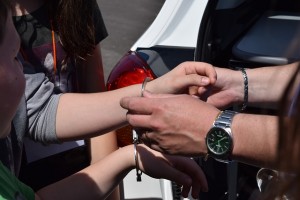If you are convicted of a drug or alcohol related traffic offense in New Jersey, not only will you face fines, fees, surcharges, a loss of driving privileges, and installation of an ignition interlock device, but you will also be required to participate in a program at the Intoxicated Driver Resource Center (IDRC). This program consists of a series of classes intended to educate drivers and identify individuals who are at risk for drug addiction and alcoholism. This mandatory program is called the Intoxicated Driving Program (IDP).
Where Is The Program Held?
The court will notify you when and where you need to go to report for your IDRC session. New Jersey has an IDRC in every county for first and third-time offenders, and three regional centers for second-time offenders. You will probably be required to attend IDRC classes in the county where you were convicted, and in the same town where the county court is located.
How Much Does the Program Cost?
When you are notified that your license has been suspended, you will owe additional fees to the Motor Vehicle Commission (MVC) and the IDRC for the classes, including the following charges:
- $100 attendance fee (paid to the MVC)
- $230 first-time offender fee (paid to the IDRC)
- $280 second-time offender fee (paid to the IDRC)
- $100 license restoration fee (paid to the MVC)
To check the latest information about IDRC fees and locations, see the State of New Jersey’s website here: http://www.state.nj.us/mvc/Violations/dui_Intoxicated.htm
How Long Does the Program Take?
If you are a first-time offender, you will be required to complete a 12-hour course. Classes are usually held on weekdays.
If you are a second-time offender, you must attend a 48-hour session. The session is usually held while you are being detained overnight on the weekend.
If you are a third-time offender, you must take a 12-48 hour class while being detained. During the course of your detainment, you will be assessed and referred for additional treatment to be completed when you have finished the IDRC program.
The IDRC has discretion to send any driver who requires additional treatment to a 16-week-long program.
What Will I Do in the IDP?
When beginning the IDP, you will first complete a questionnaire. Then, you will attend a series of educational classes about drunk driving. During these classes, you may have to watch graphic video of car accidents caused by drunk drivers. The educational component also includes active discussion periods. Topics include social drinking and problem drinking, the stages of alcoholism, how alcohol affects our families, jobs and relationships, and basics of New Jersey drunk driving law.
You will also be assigned to a counselor, who will assess your personal situation and determine whether you need additional assistance. Depending on the outcome of your assessment, you may be referred for counseling, an addiction treatment program or mandatory support group attendance to address the problems that lead to your DWI conviction.
The IDRC may require monitored treatment or self-help group attendance for up to one year. If you are referred for treatment, it will be for a minimum of sixteen weeks. These treatment programs become a part of the mandatory sentence for your DWI conviction. Individuals are encouraged to supplement any referred treatment with his or her own meetings, such as Alcoholics Anonymous (AA).
Your driving privileges will only be restored after serving all your court and MVC-imposed suspensions, and when you have successfully completed all the IDP and IDRC requirements.
Individuals are responsible for the costs of all additional recommended services and treatment.
What If I Need to Reschedule my IDRC Appointment?
The IDRC will only accept four justifications for rescheduling appointments, each of which must be supported by appropriate documentation such as an obituary, doctor’s note or letter from your employer. The four justifications include:
- A personal or family health emergency;
- Death in the family within ten days prior to the scheduled appointment;
- A documented emergency; or
- A family emergency.
What If I Don’t Show Up for IDRC?
If you fail to show up for IDRC without having an excused absence, fail to pay, or fail to complete the prescribed programs, you will be deemed non-compliant. You will then be referred to the original sentencing court and the MVC for appropriate action. You may face an extended period of license suspension, and two days in jail for failure to comply. You will still need to complete the IDP/IDRC program.
What If I Do Not Reside in New Jersey?
Even if you live out of state, you must still comply with the IDRC requirements. If you live within driving distance of a New Jersey IDRC, you will be scheduled to appear there. If not, you may be given an opportunity to complete the requirements in your home state.
Take Charge of Your Future – Start Preparing Your DWI Defense Today
Respected New Jersey DWI lawyer Edward M. Janzekovich has a unique advantage over many DWI lawyers, having served over 23 years in law enforcement. If you have been charged with drunk driving, we can use our extensive experience to your advantage. To discuss your situation, call us at 732-257-1137 or contact us online today. We serve clients throughout New Jersey, including Ocean County, Monmouth County, Mercer County, Middlesex County, Union County and Somerset County.




 In New Jersey, if you are convicted or
In New Jersey, if you are convicted or 